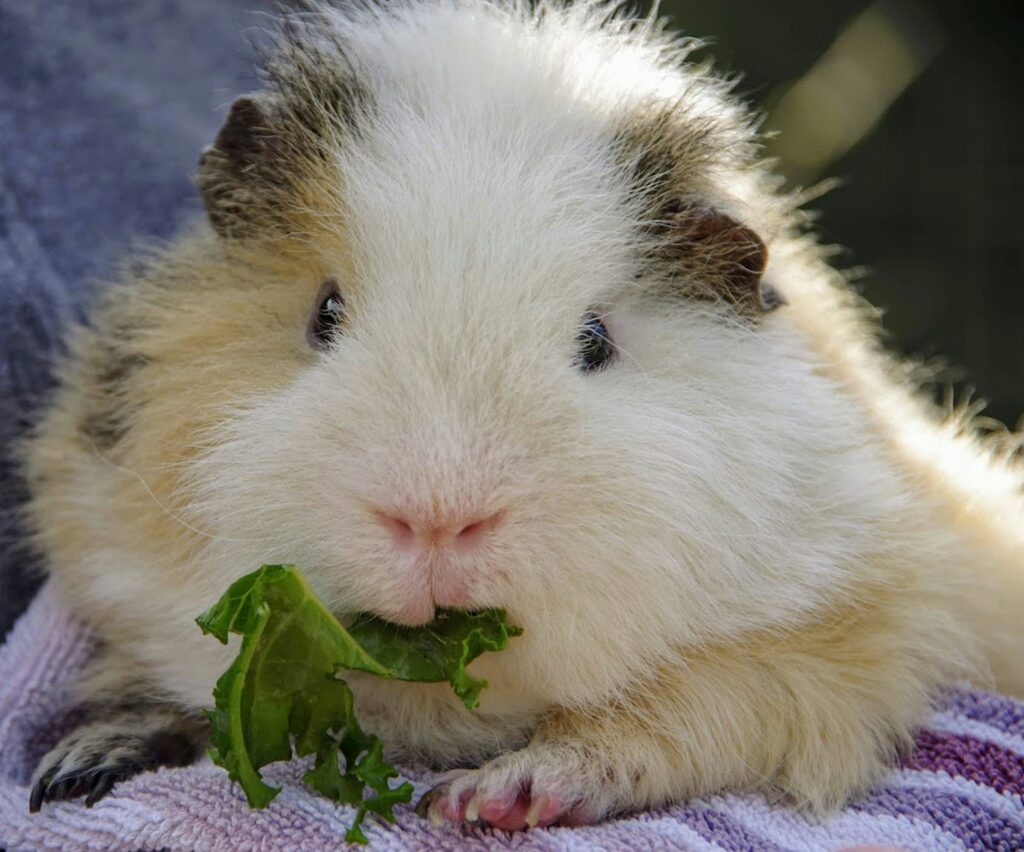Welcome to our comprehensive guide on diet essentials for guinea pigs!
As devoted pet enthusiasts, we recognize the paramount importance of providing our beloved guinea pigs with a balanced and nutritious diet. Just like any other animal, guinea pigs have specific dietary requirements that must be met to ensure their optimal health and well-being.
In this blog, we’ll delve into the essential components of a guinea pig’s diet, exploring the types of food they should eat, the nutrients they require, and the best practices for feeding them.
Whether you’re a new guinea pig parent eager to learn or a seasoned enthusiast looking to refine your pets’ diet, join us as we uncover the secrets to keeping your guinea pigs happy and healthy through their meals.
*As An Amazon Associate, If You Click On A Link On Our Site And Purchase An Item, We May Earn An Affiliate Commission At No Extra Cost To You.
Diet
A healthy guinea pig diet should contain a variety of fresh foods that meet their nutritional needs. Here’s a breakdown of what a balanced guinea pig diet should include:
- Hay: Timothy hay is a staple of a guinea pig’s diet and should be available to them at all times. Hay provides essential fiber to aid in digestion and keep their teeth worn down. It also encourages natural foraging behaviors.
- Fresh Vegetables: Guinea pigs should be offered a variety of fresh vegetables daily. Some excellent options include:
- Leafy greens such as kale, romaine lettuce, spinach, and cilantro
- Bell peppers (green, red, or yellow)
- Cucumber
- Carrots (in moderation due to their high sugar content)
- Zucchini
- Broccoli (including the leaves)
- Parsley
- Celery Introduce new vegetables gradually to prevent digestive upset, and aim for a mix of colors and textures to ensure a diverse nutrient intake.
- Pellets: High-quality guinea pig pellets should make up a portion of their diet. Look for pellets specifically formulated for guinea pigs, as they contain the appropriate balance of nutrients. Avoid mixes with added seeds or dried fruits, as these can be high in sugar and fat.
- Fresh Water: Provide fresh, clean water daily. Use a water bottle attached to the cage to prevent contamination.
- Limited Treats: Treats such as small pieces of fruit (e.g., apple, pear, strawberry) or commercial guinea pig treats can be given occasionally, but they should not make up a significant portion of their diet. Treats should be offered sparingly to prevent obesity and dental issues.
- Vitamin C: Guinea pigs cannot produce their own Vitamin C, so it’s crucial to ensure they receive an adequate amount through their diet. Fresh vegetables high in Vitamin C, such as bell peppers and kale, should be offered daily. Alternatively, you can provide a Vitamin C supplement recommended by your veterinarian.
It’s important to monitor your guinea pig’s weight and adjust their diet accordingly to prevent obesity or malnutrition. Additionally, always introduce new foods gradually to avoid digestive upset, and consult with a veterinarian if you have any concerns about your guinea pig’s diet or health.
Conclusion
In conclusion, providing a well-rounded and nutritious diet is paramount to ensuring the health and happiness of your guinea pigs. By incorporating essential elements such as Timothy hay, fresh vegetables, high-quality pellets, and Vitamin C-rich supplements into their daily meals, you can support their digestive health, dental hygiene, and overall well-being.
It’s important to remember that guinea pigs have specific dietary requirements, including a need for constant access to hay and fresh water, as well as limited treats to prevent obesity and health issues. By following the diet essentials outlined in this guide and monitoring your guinea pigs’ health and dietary preferences, you can create a diet plan that meets their individual needs and fosters a long, vibrant life.
Here’s to many happy munching moments and shared bonds with your beloved guinea pigs as you nourish them with the best diet possible.

